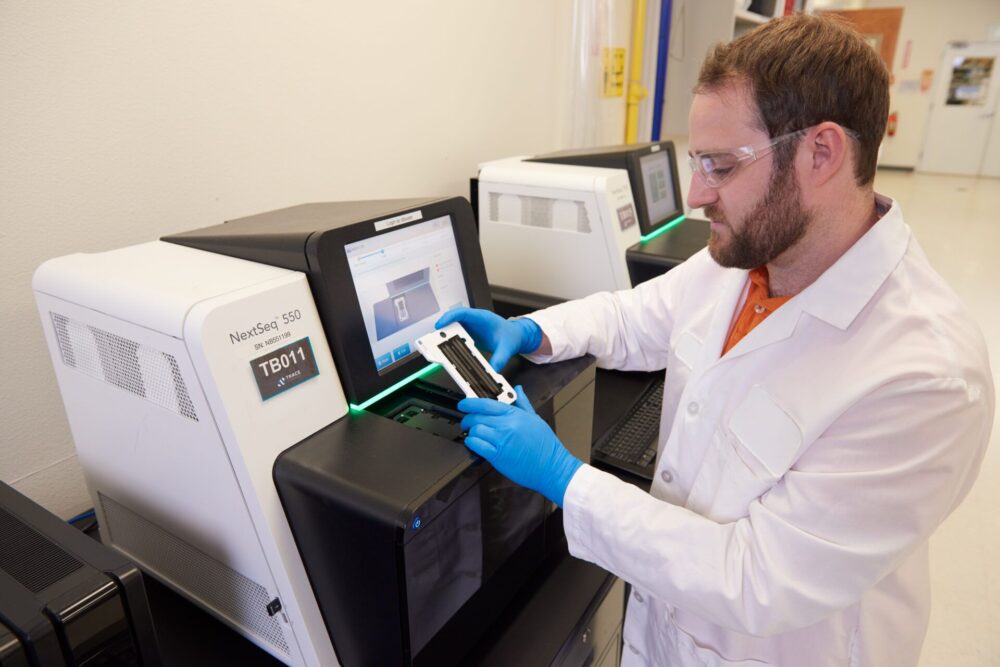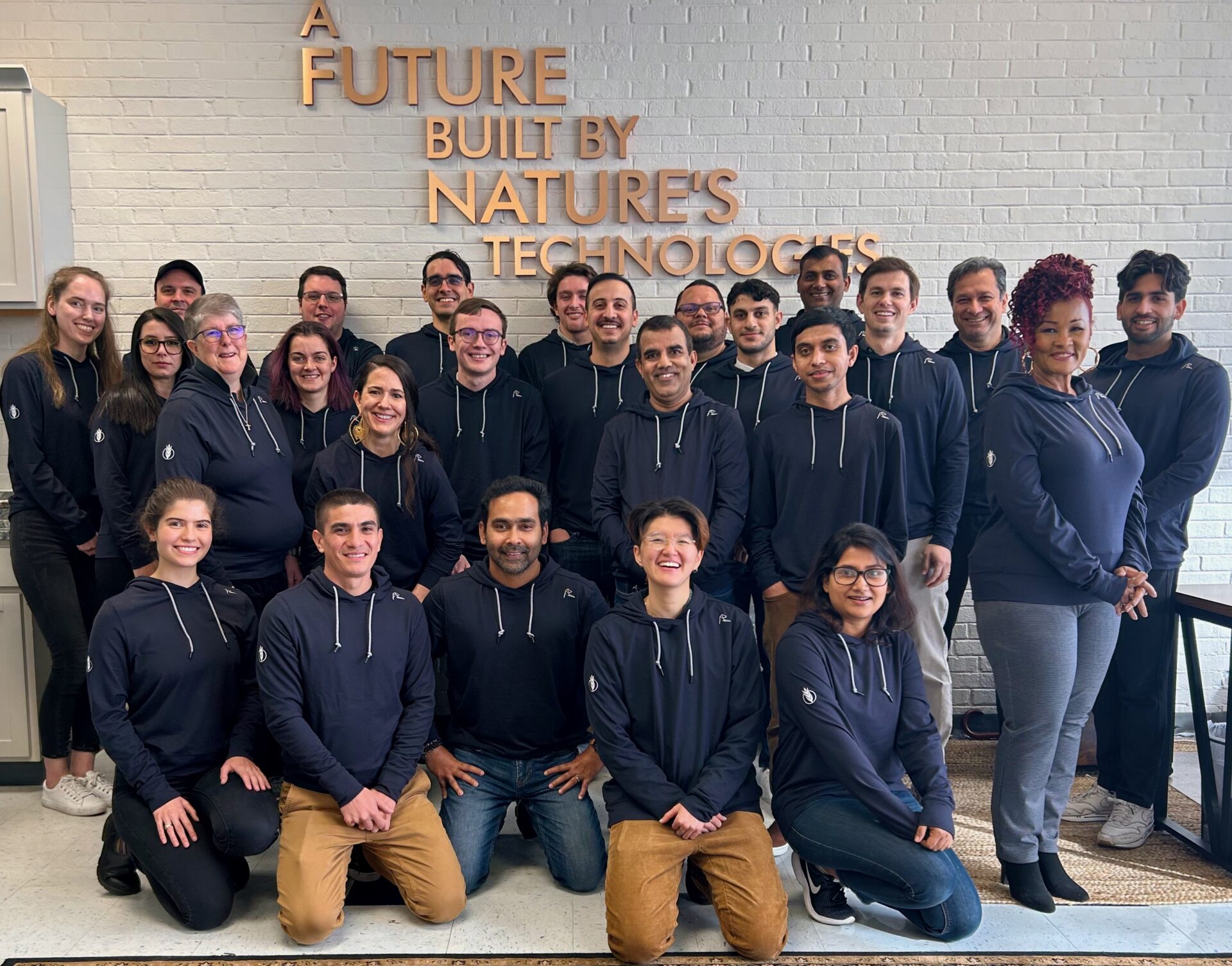The funding journey for agtech startups has been a bit of a dismal ride of late, and only partly due to the macroeconomic climate impacting most industries. Agtech itself also has some unique nuances that, for the last decade, have contributed to slow adoption and very few exits relative to other sectors, says FMC Ventures managing director Mark Brooks.
And while some argue that the VC model isn’t well suited to agtech, Brooks believes it’s here to stay — though agtech VC will look very different over the next decade from what it is today.
US-based agrochemical company FMC launched FMC Ventures in 2020, and since that time the venture arm backed the likes of Traive, Agrospheres, Niqo Robotics, and Trace Genomics, among others.
Brooks, a former academic who previously also worked at Syngenta Ventures, caught up with AgFunderNews recently to discuss a range of topics, from generative AI to the “investability” of biologicals to what the next 10 years of agtech VC will look like.
AgFunderNews (AFN): Is agtech’s funding drought just the result of macroeconomics or is there something else going on?
Mark Brooks (MB): It’s a little bit of both, actually.
On the macroeconomic perspective, every category of venture capital is down right now in terms of deal flow, dollars invested, number of deals done, valuations, etc.
But I do think that agtech has some nuances compared to other sectors.
Over the last 10, 12 years or so, we have seen somewhere around $30 billion or $40 billion of venture capital money go into agtech, and most of that has been pretty much incinerated, with very few exits to speak of. The exits that have occurred are kind of weak compared to pharma or other kinds of categories.
Why is that?
[In the] last 10 years, plus or minus, we had a lot of the Silicon Valley mindset with venture capital deals in ag, meaning the expectations were a little bit unrealistic in terms of the time horizon to exit, how fast [startups] would grow, what revenues would look like.
Now, with the valuation reset we’re experiencing, it’s a moment to take stock of where we’ve been, where we’re at, where we’re going.
Agtech is slow compared to other categories of innovation. The adoption curve is not particularly steep compared to other categories. The exit landscape is pretty small.
AFN: Is venture capital still an appropriate investment vehicle for agtech?
MB: I love that question because I wrestle with it every day. The thing I ask myself is, Is agtech still a venturable category or class of innovation.
I think the answer to that question is yes, for several reasons.
I can’t think of a single type of innovation that will have more impact on the future of our planet, the health of human species. I can’t think of another category that will have so much of an impact on food security.
The big incumbents are good at what we do, but we’re focused on the core; we’re not great at the disruptive stuff. The disruptive stuff, as in any innovation category, the entrepreneurs nail that.
How you give them the runway to succeed is venture capital or debt, which is difficult to get from a bank.
But I also think the next decade will look a lot different than the previous decade in terms of the profile of capital. One of the risks, as we look at the next generation of the profile of capital, is that we repeat the same mistakes: the generalists come in, and in this case, it would actually be the sustainability funds that come in, or the biotech funds that come in expecting a drug-discovery-type return or a pharmaceutical-type return. I wouldn’t say it’s never gonna happen, it’s just unlikely [to happen in agriculture] compared to those other sectors.

AFN: So what should we expect in the next 10 years?
MB: We had a very distinct profile of venture capital investors over the last 10 years. We had a lot of agtech-specific funds; some of those funds are going away — they’re not raising the next version of their funds, they’ve had to take massive write downs.
So I think the next generation of venture capital is going to look a lot different over the next 10 years.
You’re gonna see fewer ag-specific funds. We’ll see more impact funds, more sustainability-focused funds, ESG funds, of which AG is part of, but [it won’t be the whole] thing, which I think helps de-risk the portfolios a bit.
Out of all of the investors who are still in ag and still active, many of them are CVCs [corporate venture capitalists], like FMC ventures and our competitors. Our theses have pivoted but we’re all still active investors with follow-ons and new deals.
So if you look at the profile for the next generation of agtech investors, I think CVCs will become more important, more influential and more helpful for the startup ecosystem, because we actually know what we’re doing. We understand the space, the go-to-markets, the channel dynamics, the regulatory stuff. We understand all the things that may have tripped up investors over the last 10 years. And our parent companies would potentially be some of the acquirers.
Over the next 10 years, the profile change for ESG, more sustainability, and the profile of cvcs will be, I think, more elevated.
AFN: FMC makes crop protection products. Do you think ag biologicals are an investable category?
MB: Short answer, yes — with several caveats.
Over the last two years we’ve seen dozens and dozens and dozens and dozens of biological companies pitch to us on the venture side. Over time, I’ve built this framework in my head of what makes a venturable biological company.
The first — and this is in no particular order — the first piece would be a novel mode of action, so a mode of action that’s actually understood and actually does something that’s unique and different and novel.
The second piece of the framework would be delivery technology. So biologicals are fickle with how they achieve efficacy compared to chemistry. A lot of that comes down to the delivery, the ability for it to survive in the environment, to get into the insect gut or the cuticle of the plant or whatever.
The third thing I look for in my mental framework is a company that knows how, or at least has the capability, to to find the right targets. If you’re making a peptide or RNA molecule or whatever it is, you’ve got to know kind of what sequence you’re trying to build, you have to know what genes you’re trying to target or combination of genes you’re trying to target. That takes a lot of computing power, AI databases, data analytics, kind of capabilities.
Those companies that are actually able to uniquely pick out the right targets and then synthesize those molecules through whatever means that they have, and then deliver it to where it needs to get to, achieve efficacy.

AFN: Does any company have all three of those things?
MB: A lot of what I see is I’ve got one of those, or maybe two, but not all three.
It’s possible, over the next few years, we’re going to see more mergers, more roll ups of startup companies.
For example, a company might not have any delivery technology, but they may have excellent data capabilities to target the right genes and excellent synthesis capabilities to develop the sequence of amino acids that have a novel mode of action. Another company might have excellent delivery technology.
Together, those two startups can create more, and I think we might see more of that in the next few years as it becomes harder, potentially, to raise capital.
AFN: What else excites you about agtech right now?
MB: I think that changes month by month. What’s sustained my level of enthusiasm and excitement over the last several quarters would be agrifintech. I continue to find that category to be instrumental in helping farmers get access to credit lending, which enables better access to more sustainable inputs.
You’ve got the big ags, the distributors which all have the banks and the financiers and e-commerce companies. That’s all very attractive from a venture capital exit perspective.
I continue to be enthusiastic about anybody who’s doing anything around generative AI and machine learning. I know it’s all buzzy, but that that technology has such a huge role to play.
[For example], in biologicals [generative AI could help with] understanding what genes to target, how to target them, what those of action are needed to do this and that delivery. Generative AI is a way to accelerate or shrink the R&D process and stay ahead of or at least catch up to the impact that climate change is having on pest pressures or disease resistance.
And then I’m becoming more enthusiastic recently about genetic editing, or gene editing. We don’t do seeds at FMC, but we do crop protection, so we’re beginning to look a lot more closely now at gene editing as a complement to biologicals. Maybe that happens at the germplasm level, but maybe it happens as a sprayable trait.
AFN: What is potentially concerning in agtech?
MB: As we think about this profile of the next generation of VC dollars or VC investors, what concerns me is those who are used to other sectors coming into ag and inflating valuations. Again.
The other thing that maybe concerns me a tad would be the regulatory environment, especially in the United States, and in Europe as well.
It’s very difficult, very challenging, very expensive, to get new modes of action or biological-driven synthetics registered, especially in the EU.
That worries me a little bit because what I think might happen is we might end up with little islands of different regulatory environments around the world, where South America is easier, North America is sort of in the middle, Europe is super hard.
If we end up with regulatory islands, we’re going to end up with innovation islands, where growers in different parts of the world might have access to better stuff and other parts of the world they might have access to [inferior] solutions.
That worries me a little bit in terms of holistic, global ag production.
The other part that concerns me a little bit would be patience. I think what we’ve learned over the last 10 years is that you have to have patient capital in agtech. And I get that. I know that most CVCs get that. I think those investors who are good still get that. But again, as we look at the new profile VC dollars coming in, I don’t know if they get that.





